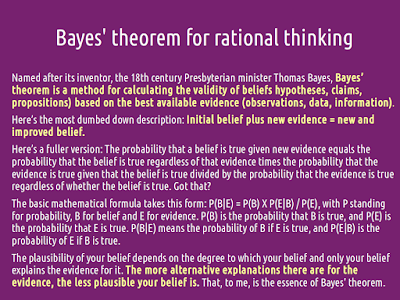In order to understand a student understanding, ask how they are imagining things?
Aphantasia, is about not able imagine the image vividly, does it trouble to create new imagination?
I have always a difficulty from childhood, for recalling the image vividly, I can’t get into details of the image. In order to remember a person's face, I need to meet up with the person again at least 3 or 4 times. Even I have trouble in navigation. But all the issues are based upon generalized context, but there are exceptions.
For example, I will reach the place second time again without trouble, if I think of/ paid attention to the landmarks, I can recognize the person with his/her face again, if I think of or paid attention to the details of his/her face while the meeting.
But in common I usually can’t recall the faces vividly, but many have a very excellent capabilities imagining person's face or knowing the direction of a place which they have visited just once.
I scored http://www.bbc.com/news/health-34039054 22 out of 40 in the test of Aphantasia.
But does that mean, people with aphantasia are less capable of imagining something new?
Imagining something new means imagining that does not exist, that we don’t see usually through our eyes. It is similar to our dream, which is not vivid, yet they are novel. It’s about seeing something, that other person don't visualize it.
Take the example of explaining a chemical reaction of cellular respiration. The reaction may seem trash at the first glance which you have to memorize, but when you start imagining it differently, it's no more a trash and you will understand it better.
Let's start imagining these statements:
Enzymes called dehydrogenases remove a pair of hydrogen atoms (2 electrons and 2 protons) from the substrate thereby oxidizing it. The enzyme delivers the 2 electrons along with 1 proton to its coenzyme, NAD+. The other proton is released as a hydrogen ion (H+) into the surrounding solution.
In order to understand such statement, we have to completely depend on our imagination. We have to imagine a dehydrogenase, for some, it may be a rough structure in mind, for some it may be just a kind of object.
Then from it 2 electrons and 2 protons come out, we have to imagine a hydrogen atom with a proton and an electron.
How will a student imagine proton and electron in hydrogen?
That depends on the previous knowledge of the student about hydrogen, of example I imagine proton as in the center, electrons revolving around it, but what if a student don’t know the structure of it properly, he/she may imagine, two pieces of some kind of objects called electrons and other two pieces of object called protons which is hydrogen coming out of it, which will be a kind of faulty imagination.
Next, we have to imagine the substrate, which is given in the diagram, we can imagine glucose as molecules. When you say about glucose, what picture comes to the mind, for me, it may be the cyclic structure of glucose or a glucose packet, and then the statement says the substrate is oxidized. How will a student imagine it if he/she does not know what oxidation is? Maybe he/she will skip the oxidation part from imagination. For me, it's removing of the electron.
As you can see only one sentence requires a prodigious amount of imagination, even though we can do it very quickly, but if our imagination is incorrect, so will be our understanding.
In order to understand what misconception a student holds, or to understand their understanding we have to understand how they are imagining things. This can be done by asking questions to students to speak about their imagination in details. How are they imagining things?







Comments